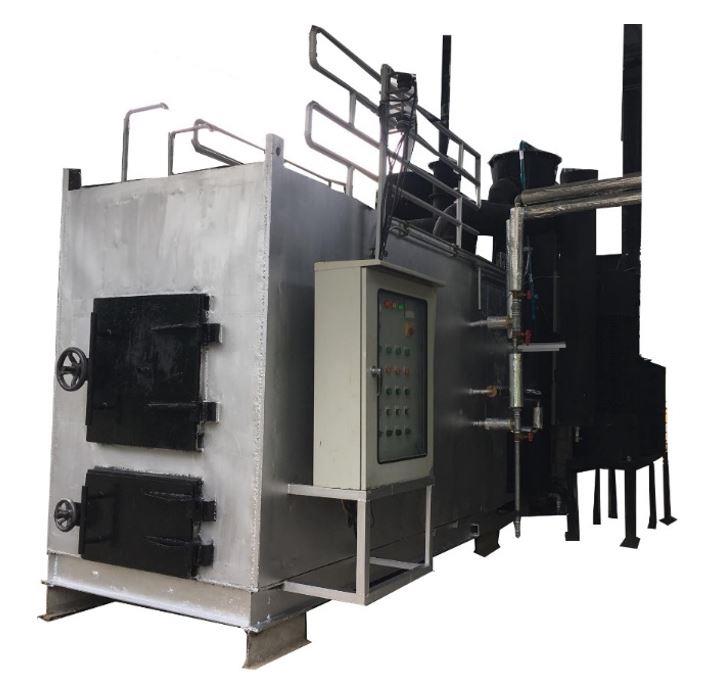“Power generation system with heat from medical infectious waste”, the first Thai innovation prototype Which uses electricity and heat generation techniques in combination with Thailand’s first medical infectious waste disposal system Research results of Associate Professor Dr. Nattapon Chaiyatun and Assistant Professor Dr. Chawarot Jaisin, Lecturer at the College of Alternative Energy Maejo University and staff Received a good award Engineering To be considered for the National Research Award: National Outstanding Researcher Award. Research Award Thesis Award And an award for invention Annual fiscal year 2021 by the National Research Agency (NRCT)
Associate Professor Dr. Nattapon Chaiyatn, the lead researcher, said, “This research results from the need to solve the problem of currently high volumes of medical infectious waste. Without causing any impact on the environment And can reduce the cost of disposing of infectious medical waste It can also be consistent with the renewable and alternative energy development plans of the Ministry of Energy. Which has been conducting research for about 5 years, having signed cooperation with 3 private companies, namely Namwiwat Karnchang (1992) Company Limited, Tanita Fabrication Company Limited and 89 Inven Company. Pion & Idea Co., Ltd. to support research funding and other parts related to research studies.
Power generation system with heat from medical infectious waste This machine is a small prototype. The rate of burning of infectious waste fuel is about 250 kilograms per hour. By adopting medical infectious waste that has been treated with granulation technique and heat sterilization. To be used as fuel and transfer heat from the combustion process to clean water. Which is an innovation that transfers heat within the combustion chamber directly to the clean fluid It can be considered as the prototype of the first incinerator in Thailand as well. The applied heat is then applied to the organic force cycle to generate electricity. And resulting in net electricity energy of approximately 20 kilowatt-hours or 20 units of electricity and from economic analysis, it was found that 1 kg of infectious waste disposal cost an average of only 3.185 baht per kilogram throughout the project. Previously, we had to hire medical infectious waste to get rid of about 10-15 baht per kilogram, depending on the distance of the hospital. In addition, the average cost of electricity production throughout the project is 3.302 baht per unit, and is able to control the environmental impact in accordance with the pollution control department’s control standards. Ministry of Natural Resources and Environment “
This research. Also received a very good award Innovation Project Proposal Contest And a gold medal, an innovation contest Type of innovative work in higher education Development of artificial intelligence technology, smart devices Energy and Environment 2020 at the 2020 National Research Expo in August 2020, as well as being selected to participate in the Thailand New Gen Inventors Award 2021 contest and exhibition (I-New Gen Award 2021) at the event. “Invention Day” of the year 2021 in the name of invention “Energy Cycle, Ranksin, Organic Substances from Mixed Energy, Community Waste and Solar Energy” during 26-30 May 2021 at BITEC Exhibition and Convention Center, Bangkok.
The National Research Office Will be holding a National Research Award: National Outstanding Researcher Award. Research Award Thesis Award And an award for invention Annual fiscal year 2021 in the “Inventors Day” 2021 to present official awards to the awardees of different categories.
Currently, the prototype system for generating electricity with heat from medical infectious waste has been expanded to commercial and actual use in hospitals and government agencies. And has been further developed for use with general waste as well This research provides an alternative solution to help solve the problem of waste disposal, which is a major problem in the country. In particular, the increasing quantities of infectious waste from disposable face masks are necessary for everyone. During the COVID-19 epidemic, it also creates renewable energy and helps solve environmental problems.


